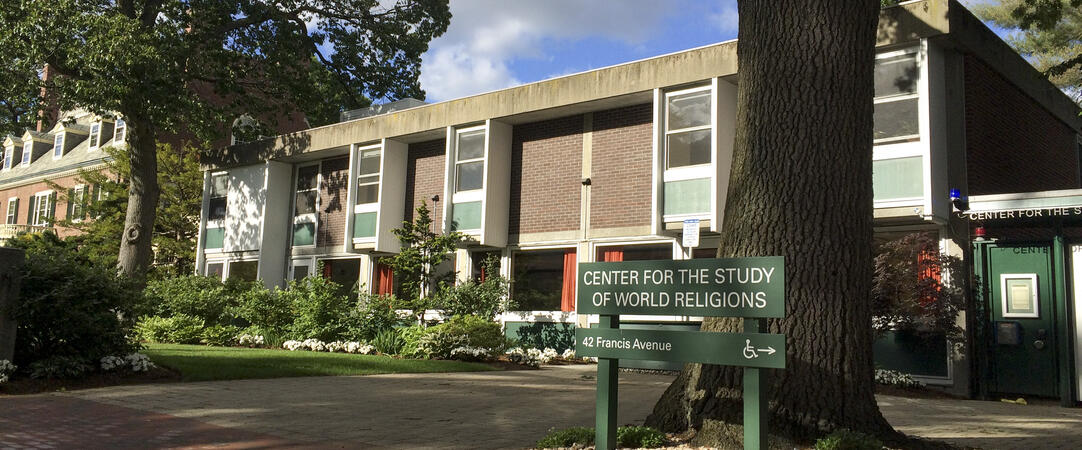Indigenous Traditions and Ecology
November 13-16, 1997
- Plenary Address/Opening Session
- Africa
- North America
- Siberia/South Asia
- Southeast Asia
- Circum Polar/Eurasia
- Meso America
- South America
- Pacific Region
- Australia
- Overviews: Understanding Exploitation and Advocacy
Plenary Address
Introduction - Lawrence Sullivan, Director, CSWR
Oren Lyons, Faithkeeper of the Turtle Clan, Onondaga Nation, Haudenosaunee, Six Nations Iroquois Confederacy
Spirituality, Reality, and the Dynamics of the Natural World
Opening Session
Opening welcome - Russell Peters, Mashpee Wampanoag Indian Tribal Council
Opening remarks - Lawrence Sullivan, Harvard University and John Grim, Bucknell University, Co-convenors
Africa
Moderator - Jacob Olupona, University of California/Davis
Ogbu Kalu, Nigeria, Visiting Professor, University of Toronto - The Sacred Egg: Worldview, Ecology and Development in West Africa
Teresia Hinga, DePaul University - African Indigenous Religions and the Search for Global Healing: The Gikuyu Case
Respondent - Pashington Obeng, Wellesley College and Harvard University
North America
Moderator - Joel Martin, Franklin and Marshall College
Donna House, Dineh, and Gregory Cajete, Tewa, Santa Clara Pueblo - New Mexico Indigenous Environmental Knowledge: Science Orientations and Community Inclusivity: Indigenous Ethics, Education, and Environmental Philosophy: A Pueblo Perspective
Ines Talamantez, Apache, University of California/Santa Barbara - Native American Paradigms for Sustainable Community
Siberia/South Asia
Moderator - Mary Des Chene, editor, Studies in Nepali History and Society
Piers Vitebsky, University of Cambridge
Smitu Kothari, Lokayan, India - Adivasi Autonomy and Dominant Religion: Some Reflections
Pradip Prabhu, President, National Forum for Self Rule, India - Ecological Sensibilities and Culture among the Warlis
Pramod Parajuli, Syracuse University - Rituals of Resistance, Ecology, and Adivasi Identity in India
Suresh Ale Magar, Janajatis, Nepal Federation of Nationalites - Autonomy, Ecology and the Janajati Movement in Nepal.
Respondent and Presenter - William Fisher, Harvard University - The Politicization of “Indigenous” Identity and Knowledge in South Asia
Southeast Asia
Moderator - Leslie Sponsel, University of Hawaii
Peter Brosius, University of Georgia - Local Knowledges, Global Claims: On the Significance of Indigenous Ecologies in Sarawak, East Malaysia
Mutang Urud, Sarawak, Victoria, Canada - Kelabit Ecological Lifeways
Stephanie Fried, Environmental Defense Fund - God Squads, Believers, and Backsliders: Religion and Forest Politics in Outer Island Indonesia
Respondent - Mary Steedly, Harvard University
Circum Polar/Eurasia
Moderator - Mary Evelyn Tucker, Bucknell University
Ann Fienup-Riordan, Anthropologist of Yup'ik peoples, Alaska - A Guest on the Table: Ecology from the Yup'ik Eskimo Point of View
Harvey Feit, McMaster University - Everyday Rituals and Hunting Metaphors: James Bay Cree Defense of Environments, Community and Inter-cultural Dialogue
Jiger Janabel, Kazakstan - The Popular Belief Versus Ecology in Medieval Kazakstan
Meso America
Moderator - Maria Elena Bernal-Garcia, Doctorado en Historia, Universidad Autonoma de Zacatecas-Instituto Nacional de Anthropologia e Historia
Javier Galicia Silva, Nahuatl, Mexico - Religion, Ceremony, and Agriculture Among the Contemporary Nahuatl Communities of Mesoamerica
Angel Garcia-Zambrano, Doctorado en Historia, Universidad Autonoma de Zacatecas-Instituto Nacional de Anthropologia e Historia - Cucurbits and Cacti in the Indigenous Ritual Selection of Environments for Settlement in Colonial Mesoamerica
Victor Montejo, Jakaltek-Maya, University of California/Davis - The Road to Heaven: Jakaltek-Maya Beliefs, Religion and the Ecology
Respondent - Maria Elena Bernal-Garcia
South America
Moderator - Kenneth Kensinger, Bennington College, Emeritus
Theodore MacDonald, Program on Nonviolent Sanctions and Cultural Survival, Center for International Affairs, Harvard University - Political Mobilization and Traditional Environmental Knowledge (TEK) in Indigenous Amazonia: Where's the Link?
Julio Valladolid, Huanca, Peru, PRATEC, and Frederique Apffel-Marglin, Smith College
Andean Cosmovision, Biodiversity and Regeneration
Respondent and Presenter - Nelly Arvelo-Jimenez, Emeritus, Instituto Venezolano de Investigaciones Cientificas - On the Origin of the Earth: the Basis of Ye'kuana Political Mobilization
Pacific Region
Moderator - Rex Mansmann, Partnership for First Peoples
Manuka Henare, Maori/University of Auckland - Tapu, mauri, hau, mana: A Maori Philosophy of Vitalism and the Cosmos
Mary MacDonald, LeMoyne College, and Simeon Namunu, The Melanesian Institute, Papua New Guinea - Toward an Ethic of Interdependence: Give and Take in Melanesia
Respondent and presenter - Victoria Tauli-Corpuz, Igorot, Philippines
Australia
Moderator - Victor Yellow Hawk White, Keetowah, American Indian Program of the American Friends Service Committee of the Pacific Mountain Region
Diane Bell, College of the Holy Cross - Environmental Dreamings: Of Religion, Romance, Reconciliation, and Resource
Tom Treverrow, Ngarrindjeri, Australia - A Ngarrindjeri View of Local Ecological Issues
Respondent - Ellen Treverrow, Ngarrindjeri, Australia
Overviews: Understanding Exploitation and Advocacy
Moderator - Werner Wilbert, Instituto Caribe de Antropologia y Sociologia, Fundacion La Salle, Caracas, Venezuela
Darrell Posey, Mansfield College, University of Oxford, and Thomas Greaves, Bucknell University - Knowledge, Innovation and Practice of Indigenous and Local Communities: Traditional Technologies in the International Political Context
David Maybury-Lewis, Harvard University - Indigenous Movements in Global Perspective: An Overview.
Screening of the documentary “Power”
“Power,” a film by Magnus Isacsson and Glen Salzman, follows the inside story of the Cree’s battle to stop the Great Whale project. With unprecedented access to sensitive strategy meetings, confidential talks between leaders and private moments among the Cree, the filmmakers offer a compelling, behind-the-scenes account of one of the most important environmental and human rights battles of our times. The film follows the Cree campaign through good times and bad, documenting internal dissension and conflicts among the Cree as well as their successes in the fight against Hydro.

